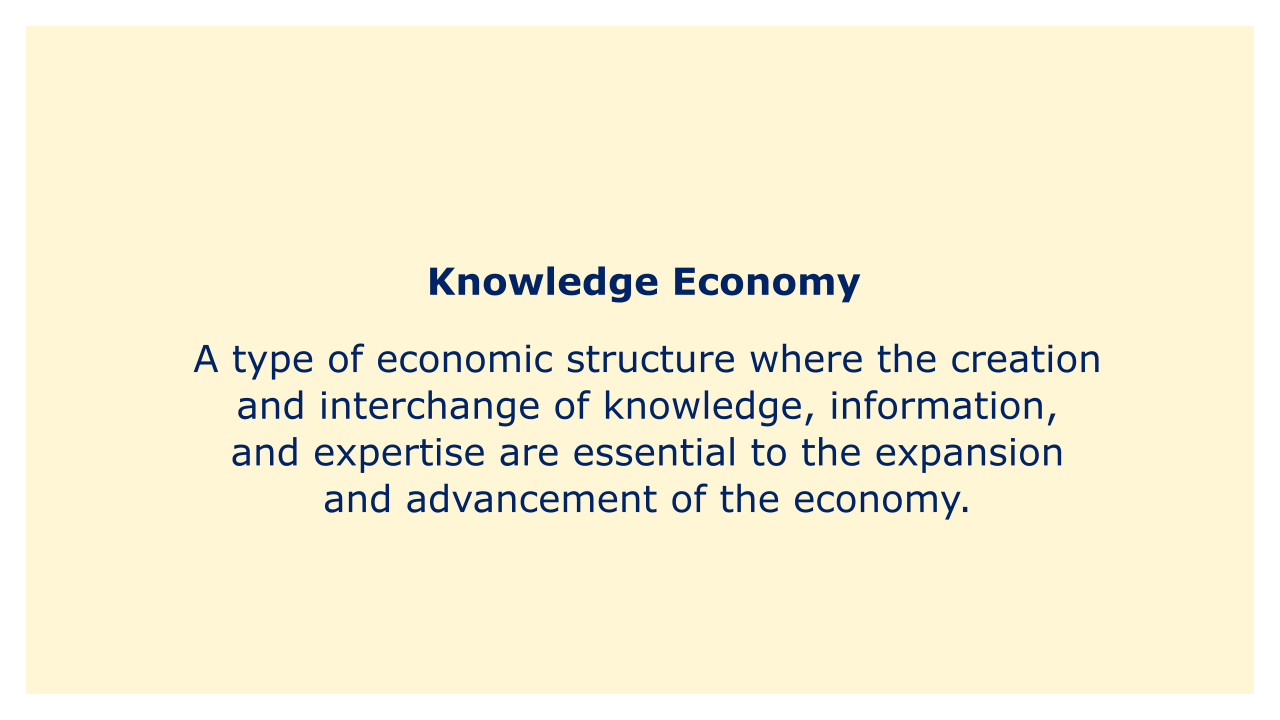 |
| Image: Moneybestpal.com |
The phrase "knowledge economy" describes a type of economic structure where the creation and interchange of knowledge, information, and expertise are essential to the expansion and advancement of the economy.
Due to the growing significance of knowledge-based industries, such as technology, information, and communication, in fostering economic growth and innovation, the idea of a knowledge economy first came into being in the latter half of the 20th century.
A number of essential characteristics define the knowledge economy, including the expanding significance of education and skill development, the value of an intellectual property, and the speed at which technology is advancing. A key factor in driving economic growth and competitiveness in a knowledge economy is the capacity to innovate and come up with new ideas.
Information and communication technologies (ICTs) have a significant impact on the production, transfer, and use of knowledge, which is one of the characteristics that distinguish a knowledge economy. It is now simpler than ever to share and work together on knowledge-based projects and initiatives thanks to the transformation in information generation, storage, and access brought about by ICTs.
The importance placed on lifelong learning and skill development is another crucial feature of the knowledge economy. Workers need to be able to adapt to new technologies and shifting job needs in a knowledge-based economy. They also need to be motivated and able to continuously improve their knowledge and abilities.
Generally speaking, the knowledge economy signifies a shift away from conventional models of economic growth based on natural resources or industrial output and towards a more inventive and dynamic model of growth based on the generation and interchange of knowledge and ideas.
A number of essential characteristics define the knowledge economy, including the expanding significance of education and skill development, the value of an intellectual property, and the speed at which technology is advancing. A key factor in driving economic growth and competitiveness in a knowledge economy is the capacity to innovate and come up with new ideas.
Information and communication technologies (ICTs) have a significant impact on the production, transfer, and use of knowledge, which is one of the characteristics that distinguish a knowledge economy. It is now simpler than ever to share and work together on knowledge-based projects and initiatives thanks to the transformation in information generation, storage, and access brought about by ICTs.
The importance placed on lifelong learning and skill development is another crucial feature of the knowledge economy. Workers need to be able to adapt to new technologies and shifting job needs in a knowledge-based economy. They also need to be motivated and able to continuously improve their knowledge and abilities.
Generally speaking, the knowledge economy signifies a shift away from conventional models of economic growth based on natural resources or industrial output and towards a more inventive and dynamic model of growth based on the generation and interchange of knowledge and ideas.
